
views
Prime Minister Narendra Modi’s visit to Russia on 8-9 July 2024 adds a new dimension to India’s policy towards Russia. The timing of his trip to Russia is quite significant. The visit is taking place when Russia is significantly isolated in the international arena on the Ukrainian issue. At the same time, Moscow is facing tougher Western sanctions, which is putting its economy under severe stress. Similarly, the global community is also facing a severe threat as the Russia-Ukraine War is turning into a war between Russia and NATO, where nuclear weapons might be used, as strategic pundits are predicting. If this happens, the global community will face grave consequences, and it may even lead to World War III. Thus, a local war involving Moscow and Kyiv might transform into a global war. Prime Minister Modi’s visit will provide a backdrop for understanding the dynamics of multipolarity in global geopolitics.
PM Modi’s visit to Russia comes after nearly five years, his last being in 2019 to attend the Eastern Economic Forum (EEF) in Vladivostok. Since then, the nature of bilateral relations has shifted considerably, alongside significant developments in the structure of global geopolitics. The onset of the pandemic has had a profound impact, as seen in the securitisation of essential supplies—including medicine, energy, and food—as a focal point of global geopolitics. Furthermore, the debate over unipolarity and multipolarity has gained prominence in recent years, particularly with the ongoing Russia-Ukraine war and Western countries, especially the United States, attempting to use NATO to expand their sphere of influence.
Using normative frameworks such as democracy, human rights, and multiculturalism, “democracy promotion” is being employed as a tool by the United States and other NATO member countries to spread their influence in the post-Soviet space. This fuels a new debate on the nature of multipolarity. While Russia’s approach to multipolarity centres on rejecting US dominance in global geopolitics, India emphasises genuine multipolarity, where the “voice” of the Global South carries weight. Since geo-economics plays a key role in shaping global geopolitical momentum, de-dollarisation is emerging as a new mantra to pave the way for an alternative international economic order. This, in turn, could enhance genuine multilateralism in global financial institutions such as the International Monetary Fund (IMF) and the World Bank.
Another important issue confronting the global geopolitical landscape is the return of nuclear weapons as a means to settle scores among adversaries, as evident from the present war where both NATO and Russia are considering the use of nuclear weapons. This situation pushes the world towards a World War III-like scenario, as discussed above. The trade and technological protectionism practices of certain advanced Western countries, along with China, hamper the Global South countries in particular and push global geopolitics into a state of limbo. Some of these structural factors, as discussed above, will shape the nature of India-Russia relations.
Along with these structural factors, some issues relating to bilateral relations need to be discussed from a broader perspective. These include: a) the need to augment bilateral economic relations; b) providing a new basis for the existing defence cooperation; c) the opportunity for Indian business conglomerates to explore the economic viability of the Siberian and Far East Region of Russia; d) strengthening geo-economic connectivity projects; e) enhancing technological cooperation between India and Russia; and f) joint cooperation to strengthen regional security.
Both the structural factors and bilateral issues discussed above are going to shape the dynamics of India-Russia relations. It’s worth noting that the historical basis of relations between the two countries is deeply rooted in civilisational connections. The same can be inferred from different studies, which suggest that Panini’s grammatical treatise, the Aṣṭādhyāyī, influenced Russian grammar. In his book Ancient India, Bongard Levin highlighted how “Hinduism and Buddhism, that originated in India, and other religious and philosophical teachings which evolved on this foundation, were to influence not merely the development of many Eastern civilisations, but also social thought in many other parts of the world.” Similarly, Indian scholar Bal Gangadhar Tilak, in his book Arctic Home in the Vedas, traces India’s geo-cultural footprints to Russia’s Arctic. The flourishing of the Tantric cult of Buddhism (Mahayana Sect) in the Siberian and the far eastern part of Russia reflects India’s historical geo-cultural presence.
Thus, it can be underlined that the deep-rooted historical and civilisational linkages between India and Russia have provided a substantial base for the fruition of the geo-strategic relationship between the two countries in recent years. One may add that both India and Russia have elevated their relations from a strategic partnership to a “special and privileged strategic partnership.” This signifies the nature of India-Russia relations.
The visit by Prime Minister Modi to Russia provides an opportunity to discuss many bilateral and international issues with his Russian counterpart, President Vladimir Putin. The visit has the potential to add new dimensions to India-Russia relationship in many ways. A key topic of discussion is likely to be the evolving nature of international relations.
Issues on Multipolarity and Revamping United Nations
PM Modi’s visit provides an opportunity to discuss the issue of multipolarity in global geopolitics. Ensuring an equitable global order is a paramount challenge confronting the global community today. Both India and Russia are eager to see a multipolar world order. However, Russia, despite its permanent seat on the United Nations Security Council (UNSC), faces numerous challenges, including sanctions. This pushes Moscow toward a more hostile policy towards the West. Conversely, Russia remains relatively silent on China’s hegemonistic and imperialistic policies, which is creating security concerns for many of Beijing’s neighbours. It’s worth recalling that during the heydays of the Cold War, India advocated for a peaceful and multipolar world order through its policy of Non-Alignment and Panchsheel (Five Principles of Peaceful Coexistence). In recent years, New Delhi has emphasised “multi-alignment” and “strategic autonomy” as the basis for multipolarity, opposing any unilateral dominance or intervention by any power in the name of Responsibility to Protect (R2P), as demonstrated during the 2011 Libyan crisis. Russia, notably, supported India’s stance. Therefore, PM Modi’s visit presents a significant opportunity to discuss the evolving nature of a multipolar world order.
One of the major impediments to a multipolar world order is the lack of reform within the existing UN Security Council. This lack of progress hinders the democratisation of decision-making at the global level. Reform of the UNSC is crucial, and India, as the “voice of the Global South”, deserves representation as a permanent member. Hopefully, Russia will support India’s case for permanent membership in the UNSC.
Indeed, the joint statement issued during President Putin’s 2021 visit to India emphasised a “more representative, democratic, just, and multipolar world order based on international law.” Democratising the decision-making process of the P5 permanent members and expanding the Security Council to include representation from the Global South are vital steps toward establishing a truly just world order. In addition to multipolarity, geo-economic issues are also likely to feature prominently during Prime Minister Modi’s ongoing visit to Russia.
Geo-Economic Issues
PM Modi’s visit presents an opportunity to bolster India-Russia trade relations, an area that has long required attention. Although bilateral trade has surged recently, reaching approximately $49.36 billion according to studies, the most important issue is the need to diversify trade relations into various sectors. Currently, India’s primary imports from Russia consist of oil and gas, as well as defence equipment. New avenues, such as technology sharing, should be explored to boost bilateral trade. Similarly, Russia should consider signing an FTA with India under the Eurasian Economic Union (EEU) framework. Such an agreement could potentially revitalise the dormant EEU.
Trade relations could be further enhanced if Russia facilitates the establishment of Indian consumer product industries within its borders. Notably, after the outbreak of the war with Ukraine, Russia faced shortages of essential commodities and relied heavily on imports from India. Russia should provide a better investment climate in Siberia and the Far East so that Indian industries can invest there and explore the local natural resources, including oil and gas. This move could also serve to counterbalance China’s growing influence in these areas, a development that has sparked resentment among local populations and put Russia on the defensive.
India, on the other hand, has the potential to play a significant role in developing infrastructure and connectivity projects in Russia’s Siberia and the Far East. It’s worth noting that India is part of the Eastern Economic Forum and has outlined an “Act Far East” policy to bolster its economic presence in these regions. Due to their strategic location, Siberia and the Russian Far East could play a key role in harnessing Kazakhstan’s oil reserves and facilitating their transportation to the international market. For instance, the port of Sabetta could be utilised to transport oil to India via the Indo-Pacific corridor. Therefore, Russia should consider viewing the Indo-Pacific through a geo-economic lens to unlock the region’s economic potential.
The Chahbahar Project, located in Iran, can also provide a springboard to strengthen India’s connectivity with Russia and Central Asian countries. The INSTC route can certainly augment India’s access to Central Asian and Russian energy. The port of Astrakhan, which historically acted as a major trading route connecting India with Russia, can play a significant role in revitalising India-Russia trade relations. The visit of Prime Minister Modi to Russia will also offer new areas of cooperation, such as joint defence production and collaboration in nuclear energy, the pharmaceutical sector, and the banking sector. This will boost and give a new dimension to India-Russia trade relations.
It is crucial for India-Russia trade relations to move towards a more pragmatic engagement. Russia must recognise that, as a rentier economy, its current crisis – exacerbated by sanctions and a lack of diversification – necessitates greater economic cooperation with India. The entry of Indian industries into the Russian market would undoubtedly provide a significant boost to Russia’s economy.
Regional Security Issues
Another key area of focus during Prime Minister Modi’s Russia visit will be the emerging security challenges affecting both nations. The Afghanistan crisis and subsequent geopolitical turbulence have impacted the security situation in and around the post-Soviet Eurasian space. Furthermore, the rise of religious extremist and terrorist groups like the Taliban, ISKP, IMU, Tablighi Jamaat, Hizbut Tahrir al-Islami, and Islamic Jihad Union has exacerbated instability in the region. The bomb blast in Russia in March 2024, the radicalisation process in Russia’s North Caucasus region, and the violent activities of radical and terrorist groups in Central Asia demonstrate the resurgence of these dangerous forces.
This resurgence poses a significant security threat to the Eurasian space. China, Pakistan, and Turkey are key supporters of these radical and terrorist groups. The political instability in Afghanistan, largely orchestrated by Pakistan, Qatar, China, and Turkey, presents substantial security challenges to both Central and South Asia. Like Russia, which continues to be a target of terrorism, India has also grappled with these same challenges for many years. As highlighted in Prime Minister Modi’s speech, read by India’s External Affairs Minister S. Jaishankar at the SCO Astana Summit on July 4, 2024, “harbouring terrorists must be strongly condemned. Cross-border terrorism requires a decisive response, and terrorism financing and recruitment must be effectively countered.” Pakistan has a long history of patronising terrorist groups that pose a security threat to India. Similarly, China repeatedly shields Pakistan at international forums, including the UN, for its role in promoting and supporting radical and terrorist groups.
In this context, security cooperation between India and Russia is necessary to fight terrorism. A Joint Working Group on Counter Terrorism exists between both sides, and 12 rounds of meetings have already taken place. The meeting between Modi and Putin will provide an opportunity to extensively discuss combating terrorism and extremism. Similarly, both India and Russia, in cooperation with Central Asian countries, should develop a new security mechanism to combat radicalism and extremism. Hopefully, Prime Minister Modi’s visit to Russia might result in the establishment of a new security mechanism between both countries, with the potential for later inclusion of Central Asian countries.
One important aspect that Russian policymakers should bear in mind is that Russia is placing too much trust in China, which could be a strategic miscalculation. Similarly, Russia’s newfound affinity for both Turkey and Pakistan may backfire, given that Turkey under Erdogan, along with Qatar, Azerbaijan, and Pakistan, as well as China, are seen as chief supporters of global terrorism. However, some prudence was shown by Russian policymakers recently when Russia rejected Turkey’s attempt to mediate between Russia and Ukraine.
Conclusion
Looking at the entire range of issues, from geo-cultural synergy to geo-economic foundations, alongside structural factors, both global and regional, it can be said that India-Russia relations are strengthening day by day. The primary basis for a stronger bilateral relationship between the two countries is mutual trust and their civilisational ties. Hopefully, Prime Minister Modi’s ongoing visit to Russia will add new momentum to this age-old historical relationship.
The author teaches at the School of International Studies, JNU, New Delhi. Views expressed in the above piece are personal and solely those of the author. They do not necessarily reflect News18’s views.











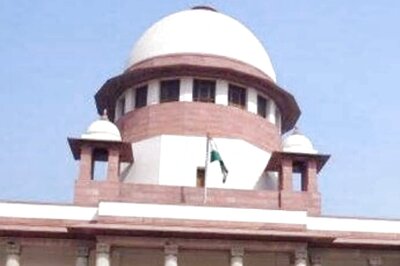
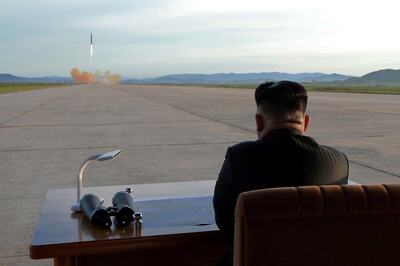
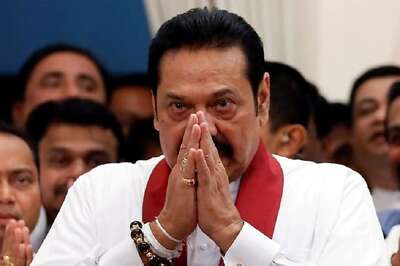
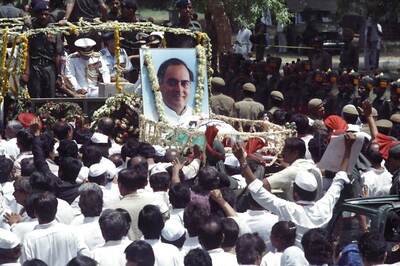

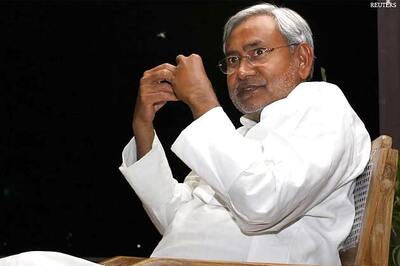

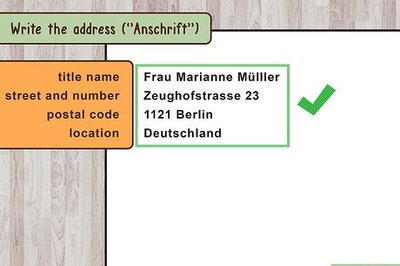

Comments
0 comment